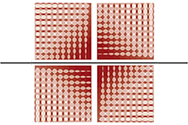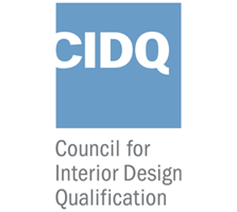


Program Description:
A CIDA-accredited (Council for Interior Design Accreditation) professional degree program leading to a Master of Arts in Interior Design. Focused on an interdisciplinary approach to design, graduates build proficiencies in the the knowledge, skills, and techniques necessary in interior design practice and scholarly research. Competencies developed include programming and design processes, graphic and written communication, problem solving and critical thinking, ethics and social responsibility, and professional practice standards. After completion of design foundation courses and a portfolio review, master's degree candidates are required to complete 51 graduate-level credits.
Course Requirements:

Program Description:
A unique educational opportunity that combined the resources and curricula of the School of Engineering and Applied Science and the College of Arts and Sciences at the University of Pennsylvania, offering undergraduate students two full degrees and a broad cross-discipline skill set. Supervised by the faculty of PennDesign (formerly the Graduate School of Fine Arts), the program was typically completed in five years and required completion of 54 credit units (162 credit hours).
Course Requirements for The School of Engineering & Applied Science:
Course Requirements for The College of Arts & Sciences:

Program Description:
This workforce development program was designed to prepare students for entry-level employment in architectural firms or construction offices. Students who completed the certificate could continue to study toward the A.A.S. in Architecture Technology. Target career opportunities included architectural draftsman and engineering aide.
Courses Completed:

The Council for Interior Design Qualification (CIDQ) is the premiere organization responsible for the development, management, delivery of the three-part NCIDQ Examination, which stands to test and gauge an interior designer’s demonstrated knowledge and core competencies necessary for professional practice. When a candidate successfully passes all three sections of the NCIDQ Exam and becomes NCIDQ Certified, not only are they demonstrating a strong commitment to preserving the integrity of the profession, but they are distinguishing themselves as an interior designer who is highly educated and able to competently design spaces that are not only appealing, comfortable and functional, but protect public health, safety and welfare. For over forty years, passage of the NCIDQ Exam has remained the highest and most credible certification standard for the industry.

The LEED Green Associate credential affirms a professional’s thorough comprehension of green building principles and practices. It is a foundational professional credential signifying core competency in green building principles.